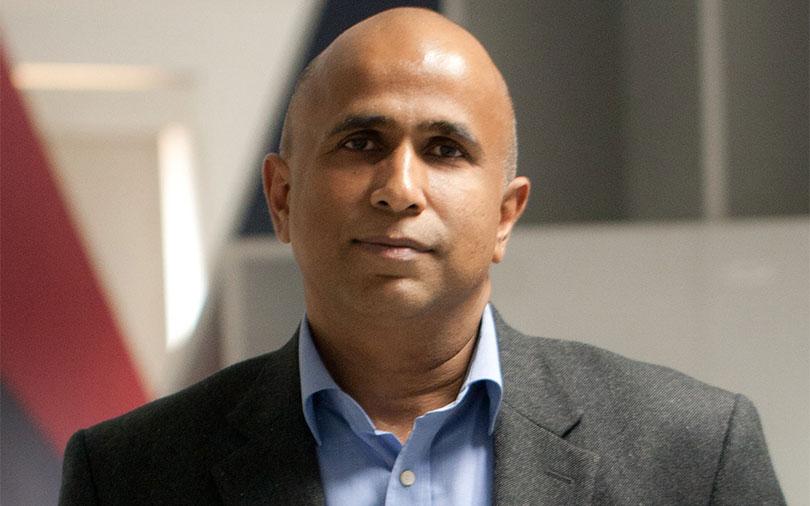Serial entrepreneurs K Ganesh and Meena Ganesh run venture building platform GrowthStory, which has backed several consumer Internet companies such as BigBasket, Portea Medical, FreshMenu, HomeLane and Bluestone. These companies have received external investments of around $1 billion so far, including from marquee investors like Alibaba Group and Sequoia Capital. In an interaction with VCCircle, Ganesh talks about why venture capital funding remained tepid in 2017 and what is in store for 2018. He also talks about the huge opportunity for entrepreneurs in working with the government. Excerpts:
The funding activity was largely subdued in 2017, barring the big-ticket ones. What went wrong?
The funding tap was closed and was expected to open up after the dust settled, but this did not happen in 2017.
Every VC firm in India is sitting on large funds raised in 2015, and these firms were expected to start deploying the capital in the latter half of 2016 and 2017.
While there have been several big funding rounds of a handful of companies, you have to look at the actual trend, which is that funding did not pick up in 2017.
There are several reasons for this. VCs are busy with their old companies and raising the next rounds. Many first-time [VC] funds with first-time [general] partners are playing it cautiously. Many funds are nearing the end of their term and, hence, the general partners are busy with exits rather than new investment. The funding scenario remains uncertain for Series B and Series C after big hedge funds stopped investing heavily.
What is the positive impact you see from this boom and bust cycle?
This has resulted in us seeing a lot more focus on sustainable business models and positive unit metrics after people burnt their fingers. We also see valuations and the average ticket size reverting to 2014 levels, which is good for everybody.
At its worst, the ecosystem saw hysteria on all fronts - a retired couple next door wanting to do angel funding, an opportunistic entrepreneur coming in thinking he would raise $2 million on a paper plan, investors backing growth/scale without any constraint - all that has stopped and sanity restored for some more time.
Is the drop in early-stage investments a cause for concern?
During the euphoric period, everyone came into angel investments. Seldom did they understand that it carried the highest risk after gambling. When a lot of companies shut down, they went away too. These are extreme reactions and we should ignore.
It was good that the purging of such investors from the ecosystem happened quickly. We now have knowledgeable guys. In the US, most of these seasoned investors are accredited angels. We don't have anything similar today. The year 2018 will be good. The number might still be small, which was the earlier scenario, but qualitatively better.
Do you expect a funding revival in 2018?
We see more sane behaviour from everyone in the ecosystem--be it an entrepreneur, investor, angel or adviser--which is good. This is also the best time to build solid businesses with reasonable valuations and expectations. Only serious entrepreneurs will now start up.
Several events of the recent past, such as demonetisation, the rapid expansion of 4G networks, the spread of digital payments, have spawned new opportunities like never before for entrepreneurs. With many VC funds sitting on a large pool of capital and having taken a cautious approach in 2017, we will see a lot more action in startup funding in 2018.
What are the focus areas for GrowthStory in finding new entrepreneurs?
A lot of changes are still happening in the economy, such as increasing smartphone usage, digital payments, Aadhaar-related opportunities and the unified payments interface as a payment platform. We need to utilise the momentum gained by the 'black swan' events to solve problems in core areas such as education, healthcare, entertainment and so on.
This should not be done in a traditional way. I see a lot of solid business-to-business companies emerging in India, like the business-to-consumer ones that came up in the last few years.
The government is now looking to buy the products and services it requires from online platforms and e-auctions. It is a highly underserved market. There is also a market in addressing social problems using technology.
What is the role of government in promoting entrepreneurship?
This government is very encouraging of startups. Generally, the investors stay shy of dealing with the government because they think it is slow and corrupt. That has to change as the government should be the buyer and partner for startups in education and healthcare as the government is the biggest player in these sectors. It is a huge opportunity waiting to be tapped. The government is also open to investing in startups through the Atal Innovation Fund and the Department of Science and Technology has funds to back university startups.
Like this interview? Sign up for our daily newsletter to get our top reports.






